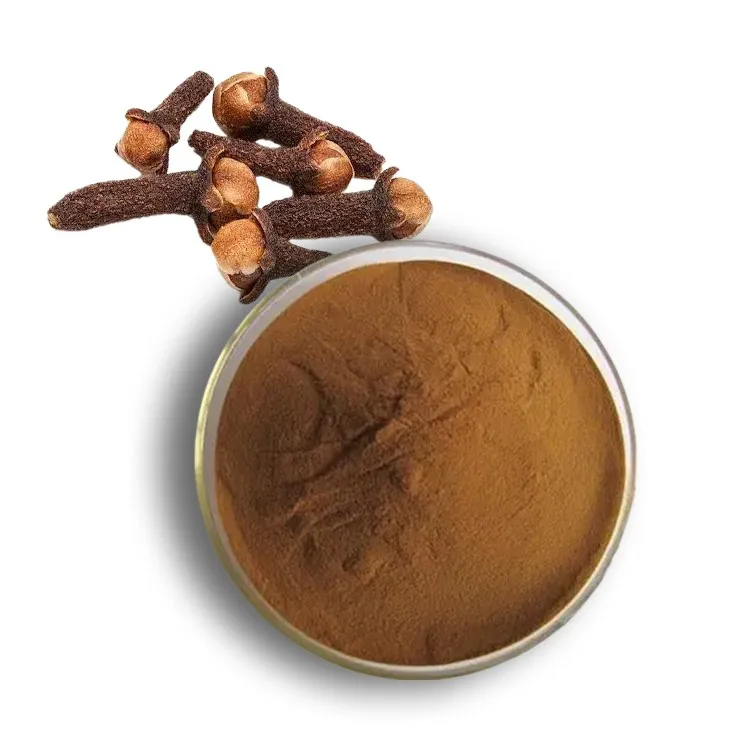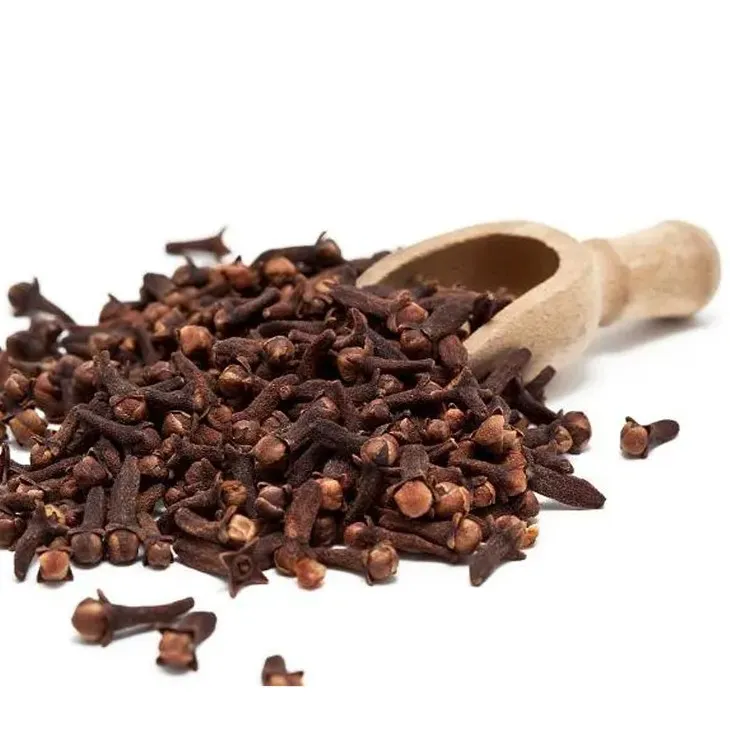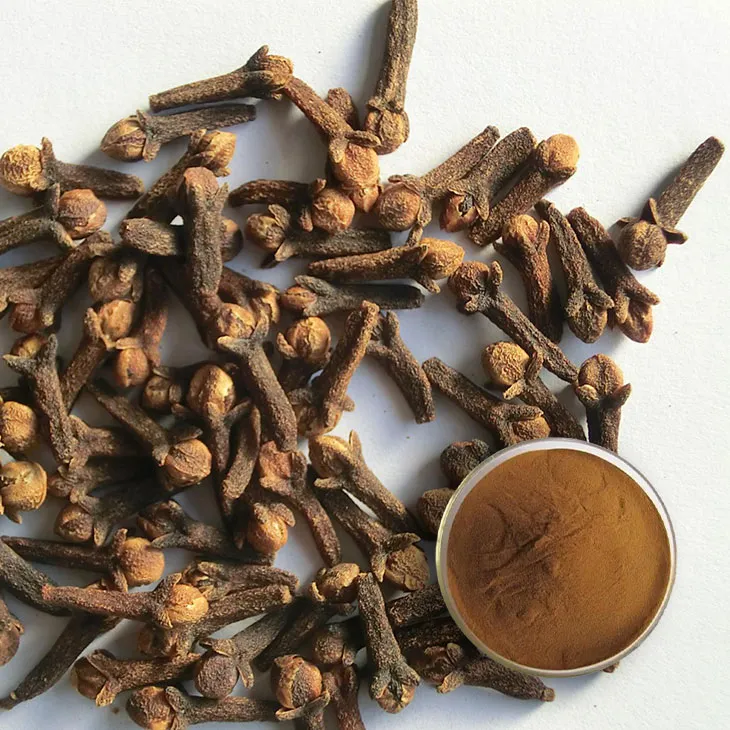- 0086-571-85302990
- sales@greenskybio.com
Clove powder: What are its benefits and how to take it?
2024-11-13

I. Introduction
Clove Powder, derived from the dried flower buds of the clove tree (Syzygium aromaticum), has been used for centuries in various cultures for its medicinal and culinary properties. This article will explore the numerous benefits of Clove Powder and how it can be effectively consumed.

II. Health Benefits of Clove Powder
A. Antioxidant Properties
Clove powder is rich in antioxidants such as eugenol, which helps to combat free radicals in the body. Free radicals are unstable molecules that can cause damage to cells, leading to various health problems including aging, cancer, and heart disease. By neutralizing these free radicals, the antioxidants in clove powder can contribute to overall health and well - being.
B. Anti - Inflammatory Effects
The anti - inflammatory properties of clove powder make it beneficial for treating various inflammatory conditions. It can help reduce swelling, pain, and redness associated with arthritis, muscle pain, and other inflammatory disorders. Eugenol in clove powder has been shown to inhibit the production of inflammatory mediators in the body, thus providing relief from inflammation.
C. Dental Health
- Clove powder has long been used for dental care. It has natural antibacterial properties that can help fight against the bacteria responsible for tooth decay and gum disease.
- It can also be used to relieve toothache. Applying a small amount of clove powder directly to the affected area can numb the pain due to its analgesic properties.
D. Digestive Aid
- Clove powder can stimulate the production of digestive enzymes, which aids in the digestion of food. This can be particularly helpful for people with digestive problems such as indigestion, bloating, and constipation.
- It also has antimicrobial properties in the digestive tract, which can help maintain a healthy balance of gut bacteria.
E. Immune System Booster
The antioxidants and other bioactive compounds in clove powder can strengthen the immune system. A strong immune system is essential for fighting off infections and diseases. Regular consumption of clove powder may help the body to better defend itself against common colds, flu, and other illnesses.

III. How to Take Clove Powder
A. Culinary Uses
- In Baking: Clove powder is a common ingredient in baking. It can be added to cakes, cookies, and bread to add a warm, spicy flavor. For example, in a traditional gingerbread recipe, a small amount of clove powder is used to enhance the overall flavor profile.
- In Cooking: Clove powder can be used in cooking savory dishes as well. It pairs well with meats such as pork and lamb. For instance, a sprinkle of clove powder can be added to a slow - cooked pork roast to infuse it with a rich, aromatic flavor.
- In Beverages: Clove powder can be used to flavor hot beverages like tea and coffee. A pinch of clove powder in a cup of black tea can create a soothing and aromatic drink, especially during the cold winter months.
B. Medicinal Uses
- Tincture: Clove powder can be used to make a tincture. To make a clove tincture, mix clove powder with alcohol (such as vodka) in a ratio of 1:5 (one part clove powder to five parts alcohol). Let the mixture sit for about two weeks, shaking it occasionally. Strain the mixture and the resulting tincture can be taken orally, usually a few drops at a time, for various medicinal purposes such as relieving digestive problems or boosting the immune system.
- Infusion: An infusion can also be made from clove powder. Boil a cup of water and add about half a teaspoon of clove powder. Let it steep for 10 - 15 minutes. Drink the infusion to enjoy its health benefits. This can be helpful for soothing a sore throat or as a general digestive aid.
- Topical Application: For dental pain or skin inflammation, clove powder can be used topically. For dental pain, as mentioned before, a small amount can be directly applied to the affected tooth. For skin inflammation, a paste can be made by mixing clove powder with a small amount of water and applying it to the inflamed area.

IV. Precautions and Side Effects
- While clove powder has many health benefits, it should be used in moderation. Excessive consumption of clove powder may cause some side effects such as stomach upset, nausea, or allergic reactions in some individuals.
- When using clove powder topically, it is important to do a patch test first, especially for those with sensitive skin. This is to ensure that there is no adverse reaction to the clove powder.
- Pregnant women should be cautious when using clove powder. Although there is not enough conclusive evidence to suggest that it is harmful during pregnancy, it is still advisable to consult a healthcare provider before using it.
V. Conclusion
Clove powder is a versatile substance with a wide range of health benefits. Whether used in cooking to add flavor or for its medicinal properties, it can be a valuable addition to one's lifestyle. However, it is important to be aware of the proper ways to take it and the precautions associated with its use. By understanding these aspects, one can fully enjoy the benefits that clove powder has to offer.
FAQ:
What are the main components of clove powder?
Clove powder is mainly composed of eugenol, which is responsible for many of its properties. It also contains other compounds such as flavonoids, tannins, and some minerals.
How does clove powder enhance the immune system?
Clove powder contains antioxidants like eugenol. These antioxidants help in fighting free radicals in the body, which in turn reduces oxidative stress. By reducing oxidative stress, the body's immune cells can function more effectively, thus enhancing the overall immune system.
Can clove powder relieve pain? If so, how?
Yes, it can. Eugenol in clove powder has analgesic properties. It can be used topically on areas of pain. For example, when applied to a toothache area, it can numb the pain to some extent. It may also work internally by reducing inflammation in the body that could be causing pain.
What is the proper way to take clove powder orally?
Clove powder can be taken orally in small amounts. It can be added to warm water, tea, or honey. However, it should be used in moderation as excessive intake may cause some side effects. Usually, a quarter to half a teaspoon per day is a reasonable amount for adults.
Are there any side effects of taking clove powder?
Yes, there can be side effects. Excessive consumption of clove powder may cause irritation in the digestive system, leading to symptoms like nausea, vomiting, or diarrhea. In some cases, it may also cause allergic reactions, especially in those who are sensitive to spices.
Related literature
- The Chemical Composition and Health Benefits of Clove (Syzygium aromaticum)"
- "Clove Powder: Therapeutic Properties and Applications"
- "Utilization of Clove (Syzygium aromaticum) in Traditional and Modern Medicine"
- ▶ Hesperidin
- ▶ citrus bioflavonoids
- ▶ plant extract
- ▶ lycopene
- ▶ Diosmin
- ▶ Grape seed extract
- ▶ Sea buckthorn Juice Powder
- ▶ Beetroot powder
- ▶ Hops Extract
- ▶ Artichoke Extract
- ▶ Reishi mushroom extract
- ▶ Astaxanthin
- ▶ Green Tea Extract
- ▶ Curcumin Extract
- ▶ Horse Chestnut Extract
- ▶ Other Problems
- ▶ Boswellia Serrata Extract
- ▶ Resveratrol Extract
- ▶ Marigold Extract
- ▶ Grape Leaf Extract
- ▶ blog3
-
High purity olive leaf extract
2024-11-13
-
Lavender oil extraction method
2024-11-13
-
100% organic virgin sea buckthorn fruit oil
2024-11-13
-
Lotus leaf extract powder factory in China
2024-11-13
-
China aged garlic extract supplier
2024-11-13
-
Deer antler extract powder manufacturer
2024-11-13
-
Saw palmetto extract vs whole herb
2024-11-13
-
Alfalfa Meal
2024-11-13
-
Hops Extract
2024-11-13
-
Hawthorn Extract
2024-11-13
-
Yellow Pine Extract
2024-11-13
-
Sophora Japonica Flower Extract
2024-11-13
-
Black Rice Extract
2024-11-13
-
Aminolevulinic acid
2024-11-13
-
Shikonin
2024-11-13
-
White Peony Extract
2024-11-13
-
Bamboo Leaf extract
2024-11-13





















